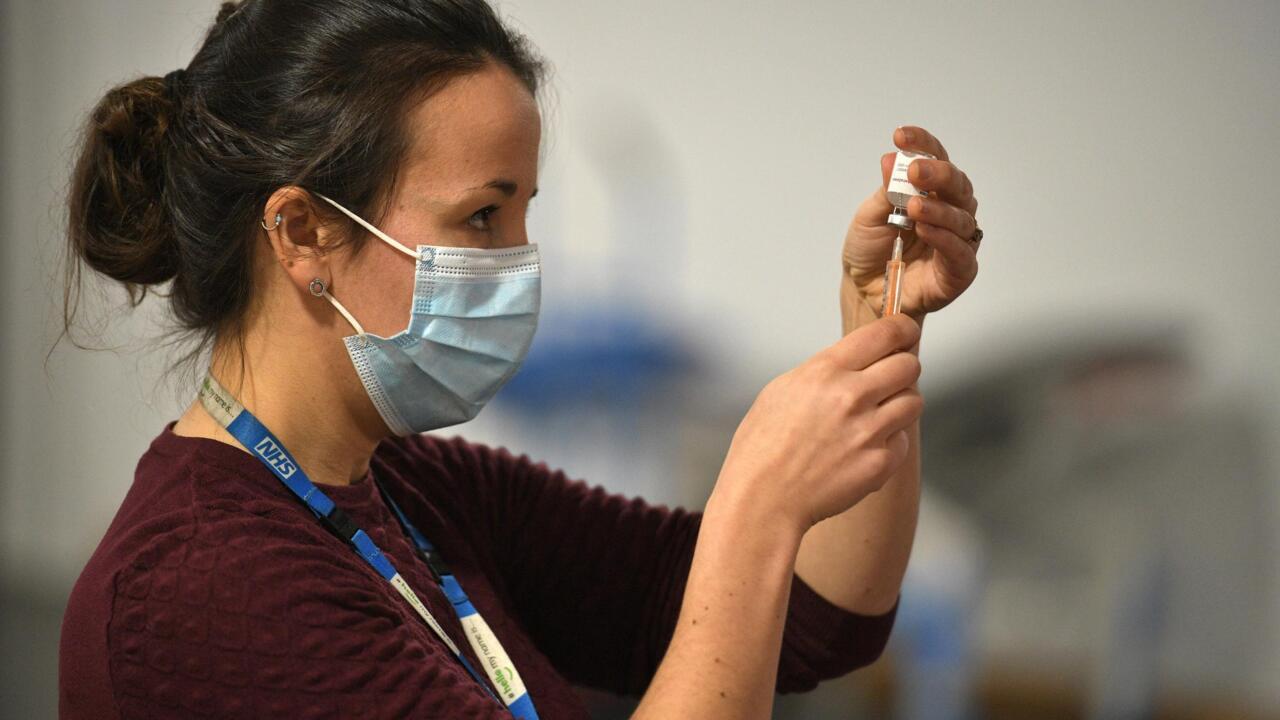
Posted in:
AstraZeneca’s warning that initial supplies of its Covid-19 vaccines to Europe will be lower than expected has sparked new concern over the release of inoculations, with some countries planning a strong drop in deliveries.
The British pharmaceutical company’s announcement on Friday was followed by another last week by Pfizer, which said it would delay shipments of its vaccine by up to a month due to works at its key plant in Belgium.
The company’s warnings come with deepening concern over new variants of Covid-19, particularly one that emerged in Britain and is more contagious than the original strain.
Europe has now recorded more than 692,000 virus deaths and nearly 32 million infections.
The EU has so far approved vaccines from Pfizer and its German partner BioNTech, as well as from the American company Moderna.
It has not yet approved the vaccine from AstraZeneca and its Oxford University partner, but a decision is expected on 29 January.
AstraZeneca said in a statement that if EU approval is granted, “initial volumes will be lower than expected”, although the start would not be delayed.
The company blamed “reduced yields on a manufacturing hub of our European supply chain”.
He said it would in any case supply the EU with “millions of doses” while increasing production in February and March.
The announcement sparked “deep dissatisfaction” on the part of EU member states, which “insisted on a precise delivery schedule,” said Stella Kyriakides, European Commissioner for Health and Food Safety.
“Very, very bad news”
Austrian health chief Rudolf Anschober called it “very, very bad news” and said his country would receive in February just over half of the 650,000 doses of AstraZeneca it had planned.
Lithuania said it expected an 80% reduction in AstraZeneca doses during the first quarter.
Irish Prime Minister Micheal Martin said “it certainly has the potential to impact the wider vaccination program … It will disrupt our plans.”
However, some government officials tried to reassure residents of their countries, tired and abused by the months of the pandemic and who are already about to deploy slowly.
“We have new vaccines on the way. We have Pfizer, which is increasing its production capacity,” French Deputy Minister for Industry Agnès Pannier-Runacher told France Inter.
The EU had initially ordered up to 400 million doses of the AstraZeneca vaccine.
In total, the EU has secured contracts for more than two billion vaccine doses for a total population of 450 million.
The AstraZeneca vaccine has the advantage of being cheaper to produce than its rivals, as well as being easier to store and transport.
“Disappointment”
German Health Minister Jens Spahn also tried to minimize the effect of the announcement, saying that after the jab’s scheduled approval in a week’s time “there will be deliveries from AstraZeneca in February”.
“How much, we have yet to clarify with AstraZeneca and the European Union in the coming days,” he said.
Sweden’s national vaccination coordinator, Richard Bergstrom, said he expects his country to receive about 700,000 doses in the first month after the vaccine is authorized, compared to the million initially planned.
Norway, which is not a member of the EU but follows the decisions of the bloc’s drug regulator, expressed its “disappointment”.
The country’s FHI health authority now plans to receive just 200,000 doses of AstraZeneca in February, well below the 1.12 million initially planned.
Meanwhile, Pfizer’s delay announced last week continued to garner criticism.
Pfizer said on January 15 that modifications to the Puurs factory were needed to increase vaccine production capacity from mid-February.
“We believe Pfizer is now to blame,” Domenico Arcuri, Italy’s special commissioner for the pandemic, told La Stampa newspaper on Saturday, confirming that the country planned to take legal action against the company.
“The 20% reduction in Pfizer vaccine supply is not an estimate, but a sad certainty,” he said, adding that the health of Italians was not “negotiable.”
Italian Prime Minister Giuseppe Conte said on Saturday in a Facebook post that any delay in the supply of vaccines amounts to serious breaches of contractual agreements and causes “enormous damage” to Italy and other European countries.
French Secretary of State for European Affairs Clément Beaune on Friday called on Pfizer to “fulfill its commitments.”
(FRANCE 24 with AFP)